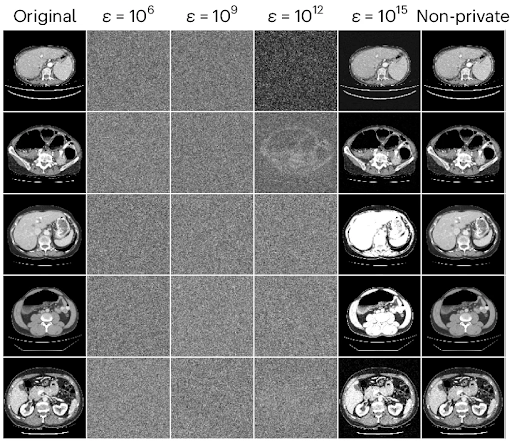Cancer care is a part of healthcare that requires accuracy and careful administration. For medical practices focused on oncology, managing patient interactions efficiently is vital to avoid denial of coverage for services provided. Denial prevention has become a key focus for cancer practices, and using technology, particularly artificial intelligence (AI), serves as a practical method to reach this aim.
In cancer care in the United States, after-hours patient interactions pose a significant challenge. Many patients have questions or need assistance outside of standard operational hours. Traditional methods—like having staff waiting for calls or utilizing third-party answering services—can lead to communication gaps. These gaps may result in denials of treatment or services that could have been addressed. As healthcare demands increase, practices should not let these chances pass. AI solutions like Simbo AI step in to assist.
The Need for Automation in Cancer Practices
Recent studies show that around 25% of denied claims in healthcare result from communication issues, often due to mismanagement of patient interactions. This is particularly concerning for cancer practices where timely responses can influence treatment continuity and patient satisfaction. For oncology practices, the consequences of a denied claim can be severe, leading to revenue loss and disrupting patient care.
Patients frequently have inquiries about appointments, treatment schedules, and financial responsibilities. When these questions are not answered quickly, misunderstandings can arise, causing frustration and possibly denials. By meeting these demands outside of normal hours with AI solutions, practices can capture critical interactions that might otherwise be overlooked.
Additionally, the healthcare environment in the United States is constantly changing with evolving policies and reimbursement models. Cancer practices must adapt to these developments. Implementing a sophisticated phone automation system allows practices to maintain efficiency, provide quality patient care, and lower operational burdens.
AI-Driven After-Hours Interaction Management
AI technology designed for managing after-hours interactions can change how cancer practices engage with their patients. Simbo AI offers a modern way to automate patient inquiries, ensuring that no call goes unanswered, regardless of the time.
Benefits of AI Automation
- Immediate Response Capability:
AI automation enables patients to receive immediate responses. For example, if a patient calls after hours asking about side effects of a treatment or confirming an appointment, the AI system can provide quick and accurate information. This swift response reduces anxiety and improves the patient experience. - Handling Increased Call Volumes:
As more patients seek cancer treatment, the volume of inquiries rises. AI systems can handle many calls at once, cutting down wait times and preventing lost calls. This is essential for practices that hope to grow without sacrificing service quality. - Data Collection and Insights:
AI can offer valuable data on patient interactions. Analytics from after-hours calls can shed light on common questions, scheduling issues, or follow-up needs. This data helps practices enhance their service offerings and tailor communication to better address patient concerns.
Enhancing the Workflow
Optimizing Staff Efficiency with AI
Efficient workflow management is important in healthcare, especially in oncology practices where clinical staff often face heavy workloads. By using AI solutions like Simbo AI, human resources can be better utilized. For instance, when AI systems manage routine inquiries, staff can concentrate on more complicated patient interactions, which improves overall productivity.
Streamlining Appointment Scheduling
AI is particularly effective in managing appointment schedules. Patients calling in to set appointments can engage with AI systems that capture their requests and confirm availability in real time. This reduces the likelihood of no-shows and keeps patients on track with their treatment plans.
Improving Claims Management
Additionally, details gathered during after-hours interactions can be crucial in the claims management process. Accurate information regarding patient inquiries supports documentation needed for audits and appeals. In cancer care, where thorough treatment documentation is essential, having AI facilitate this process can help prevent denials caused by incomplete or inaccurate information.
Denial Prevention through Effective Communication
Clear communication is key in avoiding denials. AI can play a significant role in ensuring that communication flows effectively between cancer practices and their patients. By using AI to manage inquiries, practices can provide consistent messaging. This is especially critical in oncology, where changes in treatment plans or schedules must be communicated clearly to avoid misunderstandings that may result in claims denials.
Reduction in Administrative Errors
Administrative errors also contribute to denials in cancer care practices. Incomplete or incorrectly submitted claim documentation may lead to rejections by payers. AI technologies can automate the review of documents, making sure that all necessary components are included before submission. This can lower the risk of errors that result in denials.
Empowering the Front Office
Utilizing AI supports front-office staff. Instead of spending time on repetitive tasks like answering common questions or managing appointment requests, they can focus on more valuable activities. This transition can reduce staff burnout and improve quality interactions with patients needing personal attention.
Trends in AI and Healthcare
Trends in AI and healthcare show a strong move toward automating various administrative functions. Recent research indicates that about 30% of healthcare leaders believe AI will significantly influence front-office operations by 2025. Cancer care practices should adapt to these trends to stay competitive and maintain high-quality care.
Creating a Smarter Workforce
As AI becomes more integrated into practice operations, it leads to a smarter workforce. Staff can use AI tools to boost efficiency, improving overall workflow. The combination of human expertise and AI technology creates opportunities for improved patient outcomes as practices can better allocate human resources to essential care aspects.
AI Implementation Challenges and Considerations
While incorporating AI into cancer practices offers many benefits, challenges exist. Organizations must ensure that new technology works well with current systems like electronic health records (EHR). Additionally, thorough training is necessary for staff to ensure they are comfortable using AI technology effectively.
Evaluating ROI
Cancer practices should evaluate the return on investment when implementing AI systems. This evaluation can include looking at operational cost savings, patient satisfaction scores, reduced denial rates, and overall revenue improvement. Establishing clear benchmarks is important for measuring AI solutions’ success within the organization.
Ensuring Compliance
Compliance with healthcare regulations, including HIPAA, is always crucial. AI systems need to be implemented with an emphasis on data privacy and security since patient information is sensitive and legally protected.
Future Possibilities in Cancer Care
As AI technology advances, possibilities for its use in cancer care practices are numerous. New innovations may arise that further streamline operations, enhance patient communication, and improve treatment protocols. The potential for AI to assist healthcare professionals in clinical decision-making looks promising, supplying oncologists with more robust data for treatment choices.
In summary, Simbo AI’s solutions provide opportunities for cancer practices in the United States to improve after-hours communication and decrease denials. By adopting AI technology, these practices can manage patient interactions more effectively, increasing patient satisfaction and securing revenue. As the healthcare industry evolves, it is essential for cancer practices to use technological advancements to uphold high-quality patient care and ensure operational efficiency. By preventing denials through effective communication and streamlined workflows, cancer practices can not only survive but thrive in a changing environment.
The post Denial Prevention in Cancer Practices: AI Captures After-Hours Interactions first appeared on Simbo AI – Blogs.











